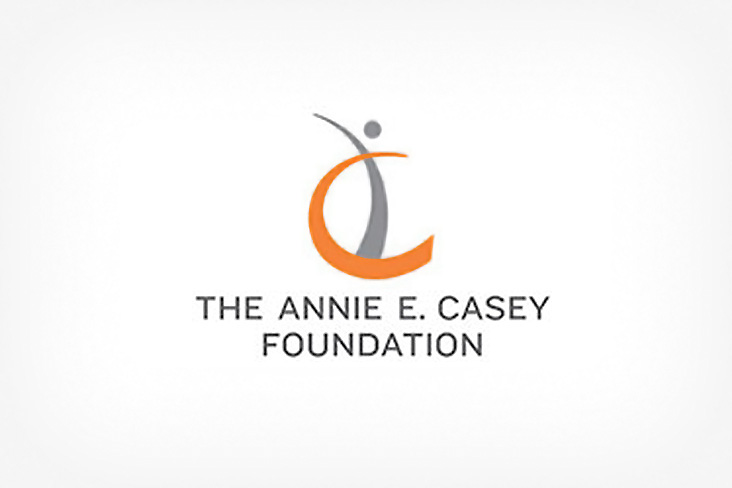 Few know the juvenile justice system better than youths who have been directly involved in it, and their voices should be a part of reform efforts.
Few know the juvenile justice system better than youths who have been directly involved in it, and their voices should be a part of reform efforts.
That’s the simple but compelling idea behind a new advisory council being established by the Baltimore-based Annie E. Casey Foundation’s acclaimed Juvenile Justice Strategy Group (JJSG). It’s seeking out the views of young people who have been involved with the juvenile justice system through prosecution, parole, incarceration and probation.
Casey’s JJSG, with assistance from the Washington-based, nonprofit Coalition for Juvenile Justice (CJJ), is creating the Youth Advisory Council, which will provide feedback on juvenile justice reform system efforts nationally. (The deadline for applications is Feb. 13.)
Alexandra Frank, a JJSG program assistant who leads the group’s youth-engagement work, said it hopes to build a national model.
“It’s obvious that there aren’t a lot of mechanisms for partnering with young people who have been involved in the juvenile justice system,” Frank said.
“We wanted to really embed a group of advisers to enhance our work who are most impacted by the juvenile justice system, and they have an incredible amount to contribute to this work,” she said. “Creating a mechanism to hear from them on a regular and consistent basis, we believe, will enhance our work.”
Jonathan Litt, CJJ’s policy and field relations associate who leads its youth-engagement projects, said the Youth Advisory Council ties in well with the coalition’s broad goals.
“CJJ has had a longstanding interest in building the skills of emerging leaders in juvenile justice system reform and improving youth-engagement efforts with members in the field,” Litt said. “This Youth Advisory Council is a very unique, strength-based approach.”
While youths have provided some input on juvenile justice reform — through CJJ’s annual Youth Summit and through sporadic Casey initiatives, for example — the Youth Advisory Council appears to be the first effort of its kind.
“There are instances where young people are invited to the table and where their voices are heard and where their wisdom is taken seriously, but I think this is an effort to be intentional about that and to build that not as the exception, but as the rule,” Frank said.
The council will consist of 10 to 12 members who will work in partnership with Casey’s JJSG and establish bylaws based in part on the group’s strategic goals, budget and staff capacity.
After the advisory council’s bylaws are established, its members will work with JJSG and CJJ to develop recommendations for JJSG. Council members, who are to be selected in March, will attend three or four in-person council meetings per year and participate in JJSG’s annual Juvenile Detention Alternatives Initiative Inter-site Conference and CJJ’s annual Youth Summit.
Council members, who will serve two-year terms, will review materials, draft and edit reports and presentations, conduct field research and participate in professional development activities and email discussions.
They will receive stipends of up to $875 for work completed during or between the meetings, and travel costs will be covered.
All council members will work with JJSG and CJJ to create “individualized development plans” to help them reach professional goals, develop skills and explore interests.
Through their work, Casey said in an announcement: “Council members will develop intimate knowledge of and contribute substantively to the Juvenile Justice Strategy Group’s system reform efforts regarding detention, probation, residential facilities and dispositional decision-making reform.”
The council will also develop a guide on youth engagement for state and local juvenile justice systems.
In its announcement, Casey said candidates should be 18 to 25 years old (though exceptional younger candidates will be considered); have previous or current juvenile justice system involvement such as probation, detention or parole; and be passionate about and committed to juvenile justice reform.
Casey listed among other qualifications for “ideal” candidates previous or current experience in juvenile justice reform such as organizing, policy advocacy, program development and research; strong writing and public speaking skills; political astuteness; interpersonal skills; and knowledge of the Juvenile Detention Alternatives Initiative (JDAI) or the Juvenile Justice Strategy Group’s work.
JDAI, which seeks to safely reduce unnecessary incarnation of juveniles, works in 250 U.S. counties.
(Youth Advisory Council candidates must submit an application form, personal statement and letters of recommendation by Feb 13 to Jonathan Litt, CJJ’s policy and field relations associate, at litt@juvjustice.org, fax to 202-887-0738 or mail to 1319 F Street NW, Suite 402, Washington, D.C. 20004. An application may also be submitted online. For questions about the Youth Advisory Council, contact Jonathan Litt at litt@juvjustice.org or 202-467-0864, ext. 110; or Alexandra Frank, JJSG program assistant, at afrank@aecf.org or 410-547-3676.)